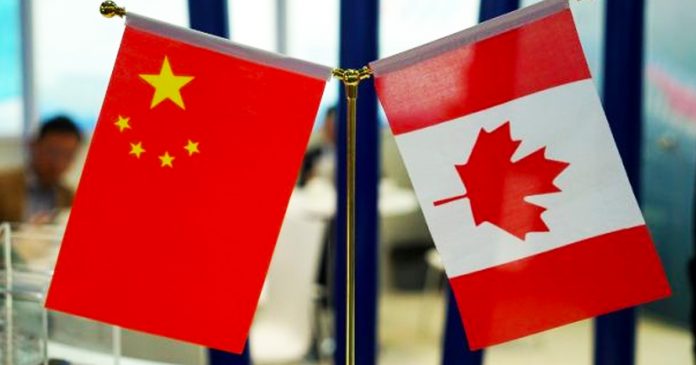Now that former governor general David Johnston has been badgered into resigning as special rapporteur into election meddling by communist China, what next?
Intergovernmental Affairs Minister Dominic LeBlanc says a public inquiry into foreign interference “has never been off the table,” following the sudden resignation of Johnston.
“All options remain on the table,” LeBlanc told reporters Saturday. “The prime minister said so when he announced the appointment of Mr. Johnston.”
Hmmm. Must have missed that press conference.
LeBlanc, who is also the minister responsible for democratic institutions, also said that following Johnston’s resignation, Prime Minister Justin Trudeau tasked him with “consulting … experts, legal scholars and opposition parties on what the next steps should look like and determine who best may be suited to lead this public work.”
Johnston resigned Friday evening, citing in a letter addressed to the prime minister the intense politicization of his appointment and work as the reason for his departure.
Since he was appointed to the role of special rapporteur in March, Johnston has faced heavy scrutiny from opposition parties for his personal connection to the prime minister. That criticism grew louder when he recommended against a public inquiry, instead suggesting public hearings that would be led by him.
Earlier this month, MPs also voted in favour of a non-binding motion to ask Johnston to step down, but just three days before his resignation, he testified before a parliamentary committee that he planned to stay on and forge ahead with his mandate.
LeBlanc said he’ll be asking “opposition leaders to take this matter seriously,” and to “not just simply say there has to be a public inquiry.”
He said he’d be in talks with opposition parties to take suggestions on who could lead a public inquiry if one were called, what the timeline would be, and how classified security information should be handled in such a situation, for example.
“Those are the kinds of conversations we’re prepared to have in very short order,” LeBlanc said. “We’ve said all along that all options remain on the table.
“We think there should be a public process going forward, as Mr. Johnston recommended,” LeBlanc added. “So my hope is very quickly, we can come to some consensus around those next steps.”
But LeBlanc also took aim at Conservative Leader Pierre Poilievre specifically, accusing the Opposition leader of “character assassination” and “partisan buffoonery” in the last few months when it comes to Johnston’s appointment.
Poilievre has repeatedly referred to Johnston as Trudeau’s “cottage neighbour” and “ski buddy,” and described the role of special rapporteur as a “fake job.”
“One of the challenges would be many eminent Canadians will understandably hesitate to step forward to undertake this kind of work when they see what the opposition parties did to the Right Honourable David Johnston,” LeBlanc said.
“So if we can lower the partisan temperature and have a serious conversation about a serious issue, we’re confident that we could find the right eminent person to lead this next public phase of the engagement.”
Meanwhile, Trudeau paid a surprise visit to Kyiv on Saturday and announced $500 million more in Canadian military aid as Ukraine stepped up its long-anticipated counteroffensive to drive Russia’s army out of occupied eastern and southern regions of the battered country.
Trudeau said that since last year, Canada has committed over $8 billion in funding assistance to Ukraine, including over $1 billion in military aid, since the start of the Russian invasion early in 2022.
The prime minister offered no details on how the new funding would be spent. However, he indicated Canada would also extend its military training mission — known as Operation Unifier — until 2026 and offered to help train Ukrainian pilots, along with other countries, on the F-16 fighter aircraft.
Back in Canada, the federal government said it intends to seize a massive Russian-registered cargo aircraft that landed in Toronto on Feb. 27, 2022, days after Russia’s invasion of Ukraine. That same day, Transport Minister Omar Alghabra announced the closing of Canada’s airspace to all Russian aircraft in response to the invasion, and the plane, the largest ever, has been grounded ever since.
If seized, it would become the first physical asset confiscated under Canada’s updated sanctions system.
